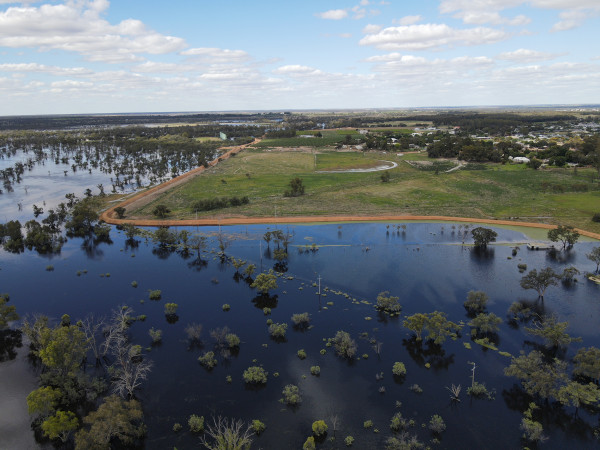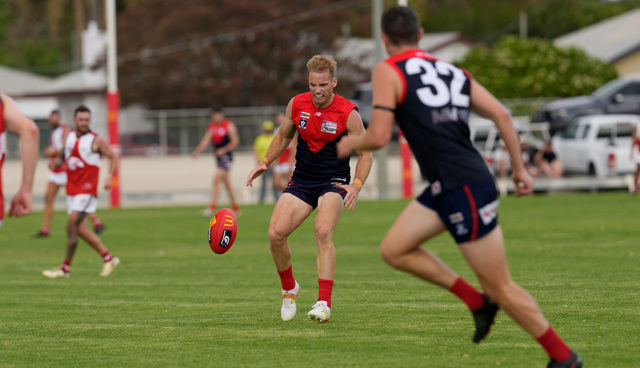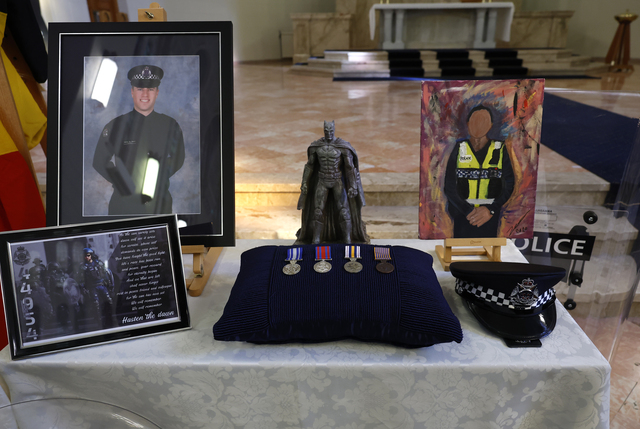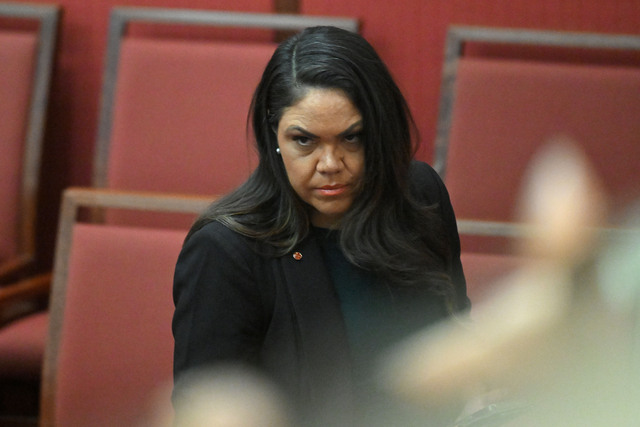IN covering the Murray flood as a journalist, I have talked to a lot of people about projections and estimations of river heights and water spread and, early on, a lot of them wanted to tell me that the official advice, which I was of course following very closely as part of my job, would be wrong.
“They have no idea, they don’t know what they’re talking about, they aren’t taking everything into account, they don’t know the river and they aren’t listening to river people.” You know the sort of thing.
“They” were usually the Bureau of Meteorology, or the local council.
We supposedly couldn’t trust “them” to do their jobs properly. The river would be much higher than the bureau predicted and then the council’s levees would be too low, or they’d be poorly built and would fail.
But then, as the waters rose and the peak arrived, I got chatting to a lady living in the Bruces Bend area who said that “everything they said would happen has happened, just as they said”.
I thought about this, and realised she was right. And so were “they”.
If you want to look back over the official projections of the past few months, especially those from the bureau, you’re going to be hard-pressed to find very much that was well wide of the mark. The accuracy of the bureau’s experts, in fact, was astounding when you consider all the factors that affect river levels, but they were also honest. When they couldn’t give a solid prediction because they were waiting on more data, they said so. And if they thought it possible that their estimation was a bit on the low side, they said so.
They did not pretend to know everything, but they told us what they knew, when they knew it. As that lady at Bruces Bend pointed out, the accuracy and the honesty had left her and most of her neighbours confident in their decisions to either evacuate or stay put.
Nearby, another resident of the area was full of praise for the council. Yep, that’s right, the Mildura council. That local government organisation that Sunraysia people habitually pan and deride.
That wasteful, useless bunch of dills (some descriptions I borrowed from Facebook) had apparently got things right, too, keeping people informed of the supports available to them and, in some cases, finding accommodation for people whose homes had been, or would be, inundated.
Now, it doesn’t surprise me that the weather bureau was right or that the council was helpful, because that’s just them doing their jobs. I think it’s a bit of a shame, though, that we so easily criticise and complain about such public bodies without any real facts to back up our bitching.
I mean, did you know that the weather bureau actually IS right about the weather almost all of the time? Or that the council actually DOES help thousands of people as it manages local infrastructure and services, usually on very tight budgets? A lot of people will say that’s rubbish, but I say that’s just their habit. I say “they” haven’t questioned their own criticisms and that “they” are just in the mood to grumble about something, and that an easy target will do.
OK, sure, the bureau is a bit out sometimes on exactly where and when a storm will hit, but it’s really not very often and do you have any idea how complex meteorology actually is? And of course the council makes mistakes and some decisions we don’t like, but how would you please all of the people all of the time?
My point is not that you should always just believe without question what you’ve been told by experts or government agencies, nor always agree with their plans and actions.
But it’s counterproductive, often disruptive and sometimes just plain dumb, to habitually declare that “they” are wrong when you really can’t know that they are.
That’s especially true in a time of crisis, such as a flood, when it’s obvious that “they” are not just trying to help, but are professionally and effectively providing absolutely crucial information, advice and assistance when we need it most. Personally, I think that “they” deserve credit for that, and our thanks.







